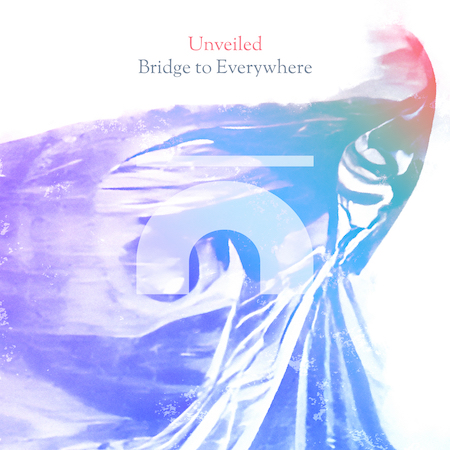A celebration of global interconnectedness, Unveiled immerses the listener in diverse musical influences, seamlessly creating a tapestry of interwoven sounds. The album showcases the diverse talents and unique blend of musical influences of several composers in the group. Although these composers draw from a wide array of influences in the album —including the intricate melodies and rhythmic systems of Hindustani classical music, the asymmetrical meters found in Greek and Balkan traditions, the polyrhythms of West Africa, the sinuous textures of Neo Soul, the enchanting harmonies of Erik Satie, as well as inspirations from Pablo Neruda, the I-Ching, and feminist symbol Lilith— underneath it all is the ever-constant philosophy of searching for innovative and meaningful ways to connect different genres, instruments, cultures, and ultimately people, together through sound.
Available on Bandcamp, Spotify, Apple Music, YouTube.
The Composers & Track Descriptions
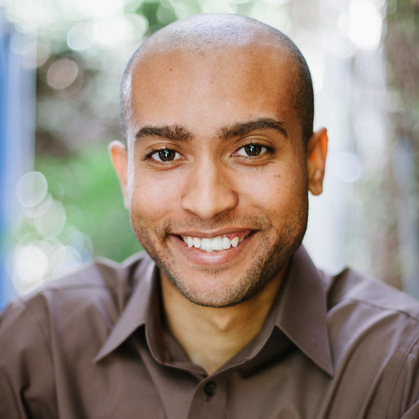
Unveiled This Heart (rev. 2021)
Derrick Skye (b. 1982)
‘Unveiled This Heart,’ is a transcultural classical composition that weaves together the polyrhythmic elements of West African music, rhythmic phrase patterns often found in Indian classical music, and linear melodic techniques common in oral music traditions. The song’s lyrics, written in English, delve into the theme of opening one’s heart to the world. This piece aims to subtly express the ongoing process of an individual courageously showing their authentic self to others.

Lilith’s Bush (rev. 2022)
Rachel Iba (b. 1991)
Lilith as a biblical term and character has taken on many forms across texts both religious and secular dating back to circa 700 b.c.e. Sometimes referred to as Adam’s “first wife,” she was originally portrayed as a demon, wild and unkempt, embodying a societal fear of female sexuality and autonomy. In contemporary feminism, Lilith has been reclaimed as a powerful symbol of equality, independence, and sexual liberation.
Lilith’s Bush, originally written in 2016, and adapted for Bridge to Everywhere in 2022, is a musical feminist creation story, featuring sections of structured narrative improvisation, as well as through-composed musical narrative.
—Rachel Iba
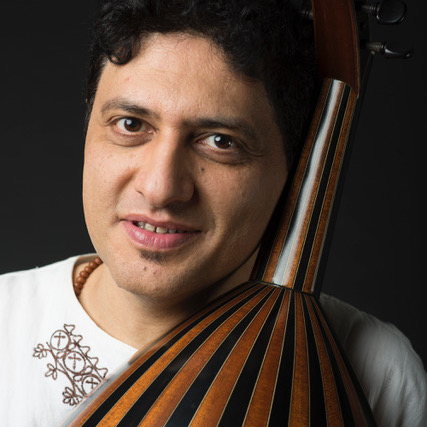
Interplanetary Kisses (2015)
Dimitris Mahlis
The title of this piece “Interplanetary Kisses” is excerpted from a poem by Pablo Neruda, from his Book of Questions / Libro de las preguntas. The book has more than 300 questions that span a wide range of topics: from death and dreams to politics, literature, seasons and time. Compositionally, this piece uses the 10-beat Curcuna rhythm, in groups of 3-2-2-3 beats. The harmonic and melodic elements of the piece draw from Indian classical music, while the rhythmic material draws from Greek and Balkan traditions. The piece was written on the composer’s main instrument, the oud, so the tuning and key of the piece are influenced by the character of the oud.
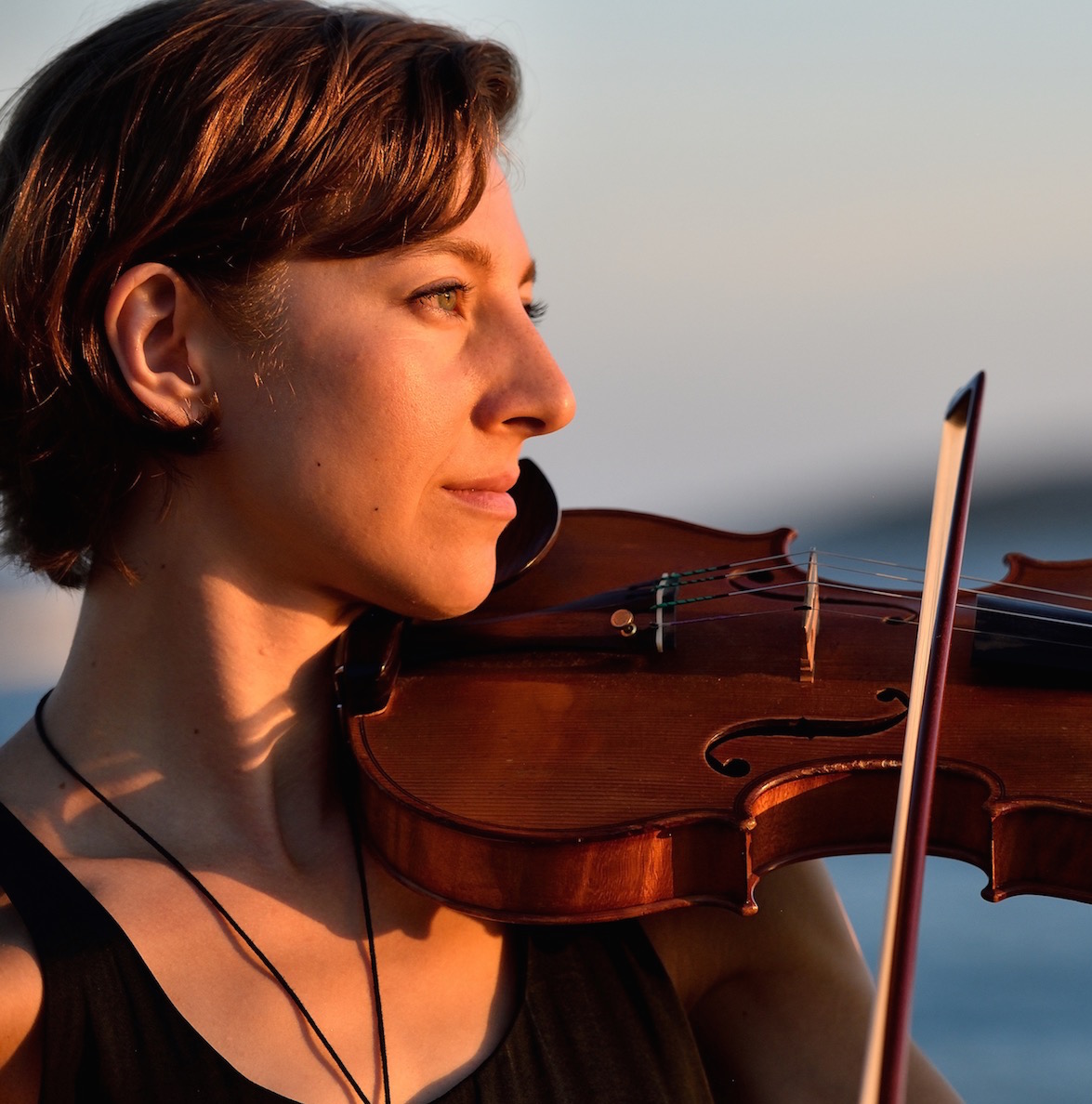
Thunder Over Water (2021)
Yvette Holzwarth (b. 1988)
Thunder Over Water is a song by Yvette Cornelia Holzwarth. Drawing imagery from the I-Ching (Book of Changes) and overlapping stories (both personal and collected), the lyrics explore psychic liberation upon making it through a storm. The piece arranged for Bridge to Everywhere features an oud solo by Dimitris Mahlis.
Thunder over water
A lonely boat at sea
Follow. follow the lights on shore
We have got nothing more
to guide our way
Your lost anchor
Set us adrift
In storm and waves
We’ ll be tossed and tumbled
Like those three damn coins
That seal our fate
Electric night sky
Tears at the seams
Opens her mouth wide
And swallows us in
Piercing lightning
Rips the old black cloth
Try to fight it
But this was just our luck
I couldn’t change a thing
Danger on the water
A sudden bolt of light then relief
Thunder over water
A lonely boat at sea
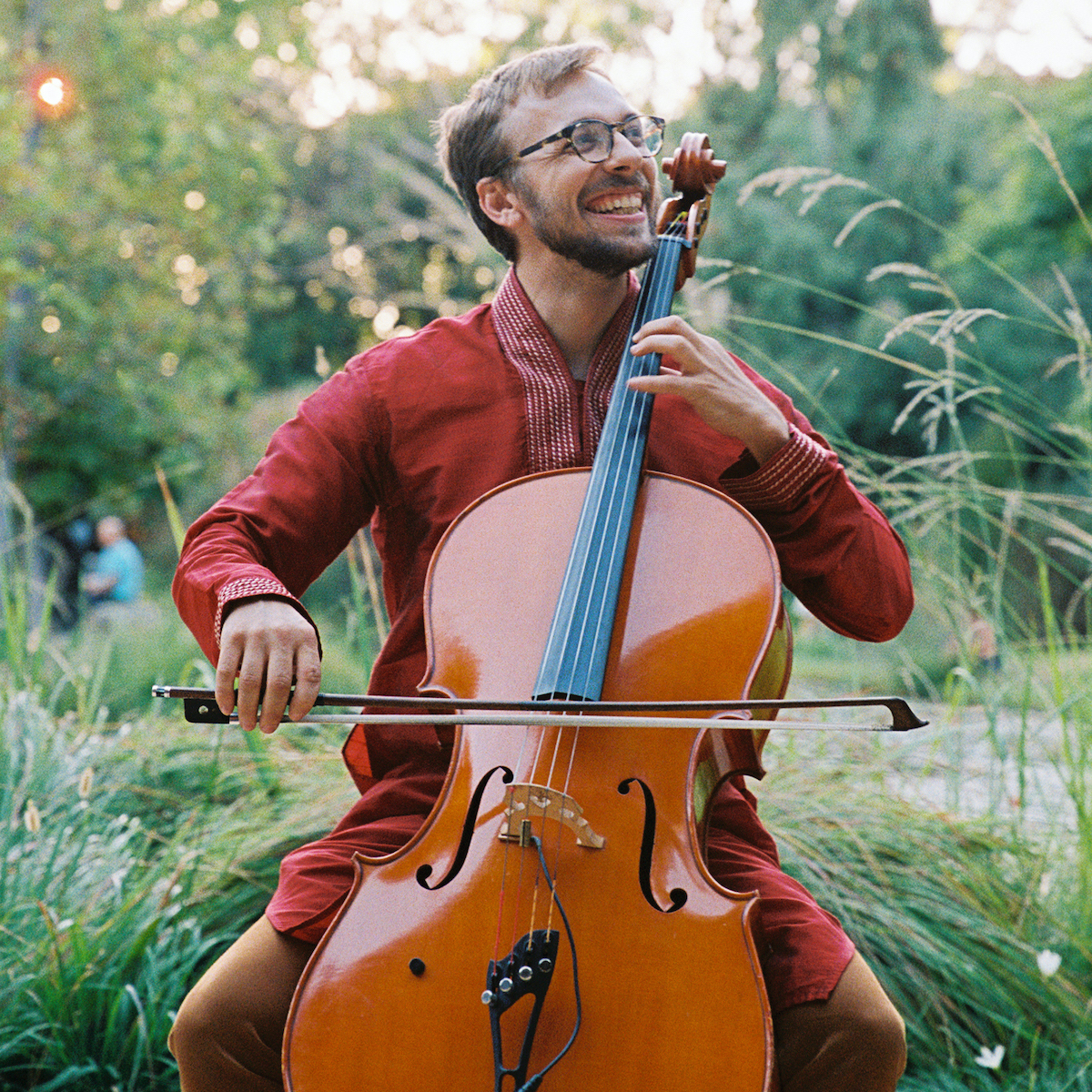
Chamber Thumri in Raga Kafi (2021)
Chris Votek (b. 1987)
The pure form of raga Kafi is described in ancient texts as the natural scale and one of the oldest ragas, its notes correspond to the Dorian mode. But today Kafi is usually heard in light classical music such as this Thumri, a romantic-devotional song form that allows more flexibility for the performer to stray outside the grammar of the raga. This chamber setting of Raga Kafi is based on the teachings of my guru Padmabhushan Dr. N. Rajam, and I hope in some small way it expresses the gratitude I feel for her guidance along the path toward greater beauty.
—Chris Votek
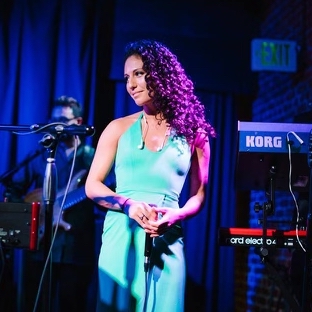
Back to Me (2024)
Hannah Arista
With Additional Composing by James Waterman, Arranged by James Waterman & Hannah Arista
Inspired by visions of a past life, Back to Me, is a song about the complex relationship with one’s true essence. The arrangement by James Waterman, weaves together elements of Western Classical, Pop, Indian Classical, Hip Hop and Electronic Dance Music, and Minimalist Post Rock. Waterman performs a wide plethora of instruments from auxiliary and hand percussion, to keyboards and synthesizers. Strings parts are performed by cellist Chris Votek and violinist and violist Yvette Holzwarth, who also improvises the delicate but complex tapestry that accompanies the multilayered outro of the song. The piece’s vocal approach utilizes timbres including heavy breaths and high whistle tones and is stylistically inspired by Neo-Soul, Pop, and Bulgarian folk.
Lyrics:
I’ve always known that it was you
You’re everything I ever wanted
Buried deep, taught to subdue
My destiny, never forgot it
On the outside
When is our time
An invisible wall between us
Resisting, almost can hear you breathing
Past whispers of hopes lost beneath dust
Existing so close, I’m done with dreaming
On the outside
When is our time
And I lift through divine lifetimes
And I’m flying to you
And we lived for all this time
To just come back to me
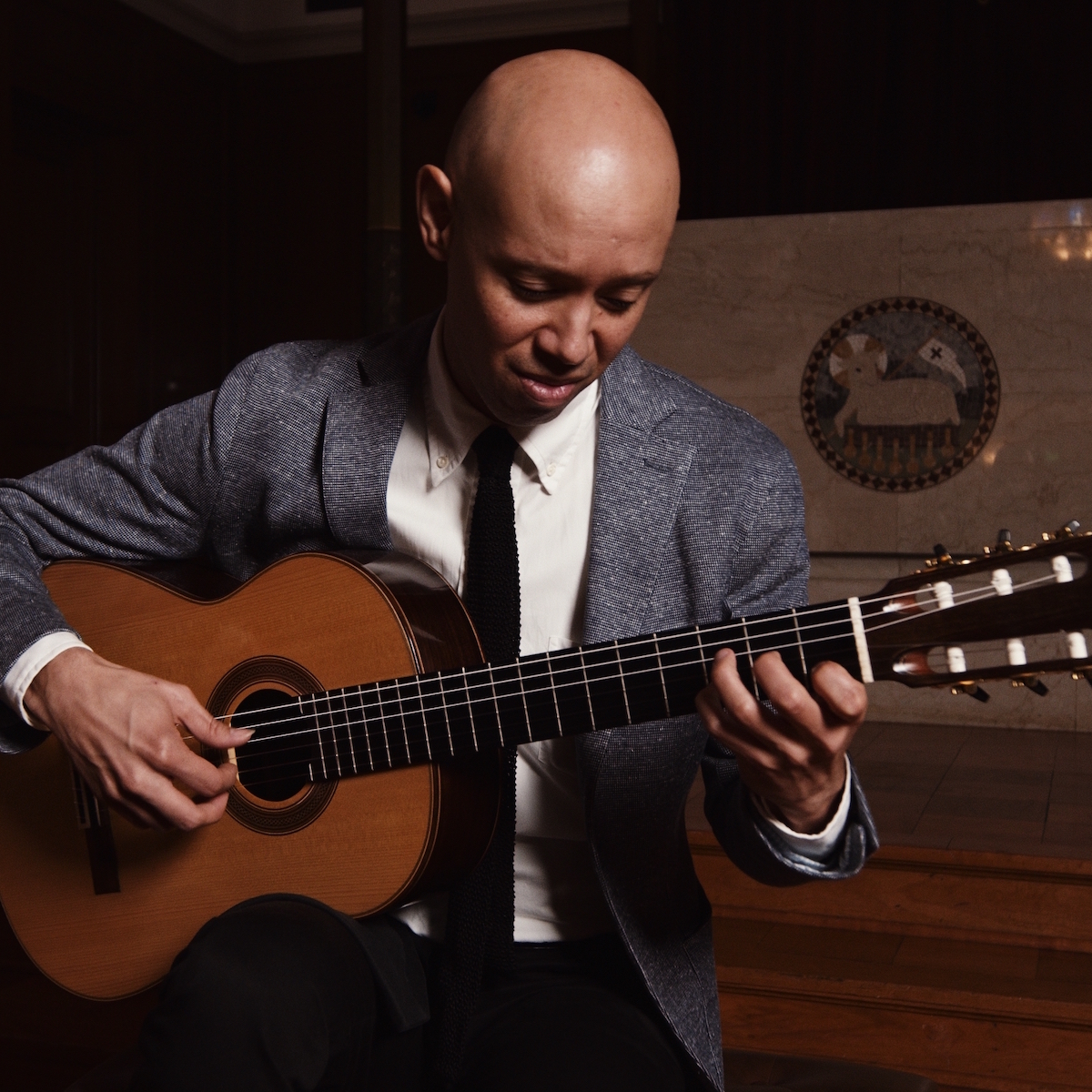
Thursday, An Umbrella (rev. 2022)
Philip Graulty (b. 1980)
Lyrics by Hannah Arista & Philip Graulty
Thursday, An Umbrella is a piece that exists in two forms. The piece was originally written for solo electric guitar and electronics (loop pedal) in 2007, then rewritten for amplified septet (alto, flute, viola, marimba, electric guitar, violoncello, electric bass) in 2022.
The piece is comprised of three phrases, of varying lengths, which phase with one another. In the solo version, the phrases form the loop. In the ensemble version, the phrases evolve as the piece progresses. Harmonically, the piece uses an alternating progression of two major seventh chords, the subdominant and tonic, which is based on the opening theme from Erik Satie’s Gymnopédie no. 1. A simple melody floats above it all.
—Philip Graulty
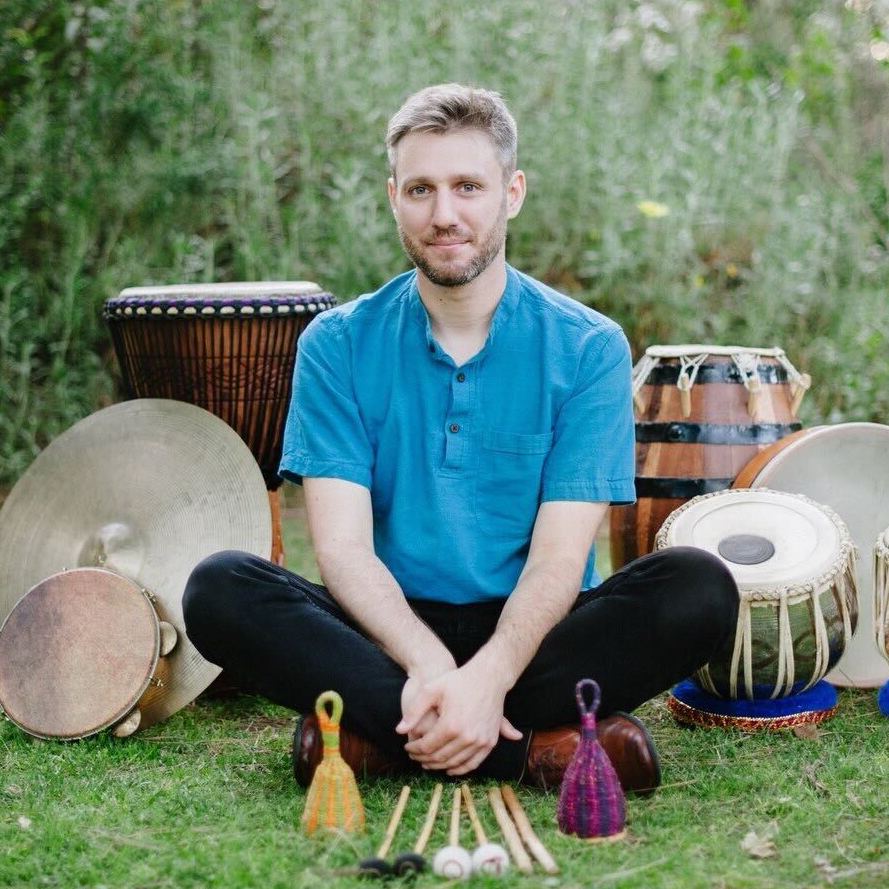
The Elephant King (2021)
James Waterman (b. 1990)
The Elephant King is inspired by my studies in North Indian Classical music and the polyrhythmic drumming of the Ewe people of Ghana, Togo, and Benin. It aims to explore different approaches and feels of a 12-beat cycle through a common West African bell pattern, phrases derived from Ewe drumming, and exercises in the Hindustani 12-beat rhythm cycle Ektaal. The piece culminates in a kaida (tabla composition) performed as a conversation between the wonderful Neelamjit Dhillon reciting padhant (rhythmic recitation) and tabla playing back what is spoken. Peppered in throughout the piece are echoes of various musical loves of mine, including rock, hip hop, jazz, dancehall, and a little bit of Trinidadian soca music. Lead Vocals are sung by Saili Oak on Indian Classical sargam syllables. The track also features instrumental solos by Philip Graulty (guitar), Yvette Holzwarth (violin), and Neelamjit Dhillon (alto saxophone). A huge thank you to my mentors and friends Pandit Swapan Chaudhuri, Randy Gloss, Dzidzogbe Lawluvi-Ladzekpo, Yeko Ladzekpo-Cole, Rajib Karmakar, and Andrew Grueschow for generously sharing their knowledge and talents with me throughout the years.
—James Waterman
Acknowledgements & Thank Yous
Mount Saint Mary’s University Music Department, Mount Saint Mary’s University Center for Global Initiatives, Dr. Therese Fassnacht, Dr. Lia Robeerts
Bridge to Everywhere Interns:
Trang Trinh, Sofia Jaquez
Bridge to Everywhere Board Members:
Robert Cresswell, Philip Graulty, Kateri Lirio, Marc Nimoy, Gabrielle Rosse, Stephanie Terrazas, Kim Nguyen Tran
Executive Producers:
Derrick Skye, Ian Smith, James Waterman, Marc Nimoy, Kim Nguyen Tran, Philip Graulty, Rachel Iba, Mark Gutierrez, Jacqueline Marshall, Rachel Mellis, Saili Oak, Yvette Holzwarth, Nikki Shorts, Dimitris Mahlis, Hannah Arista, Anna Kouchnerov, Neelamjit Dhillon, Chris Votek, Michelle Elliott Rearick
